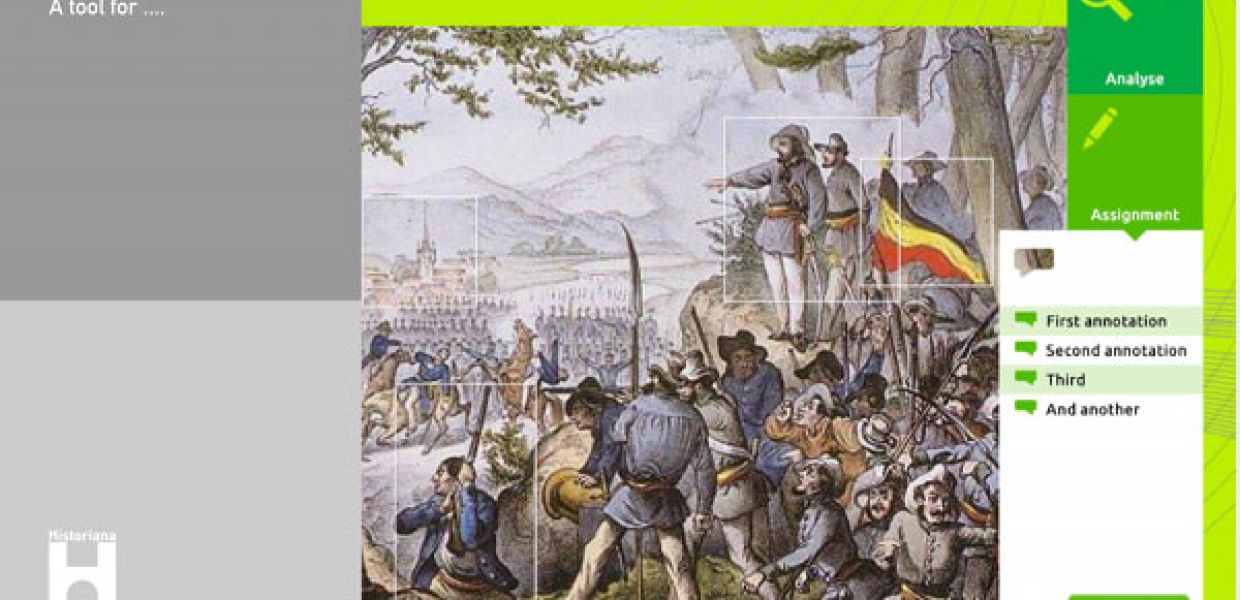Starting the Evaluation of eCreative Pilots

- Title:
- Prototype of one of the history education tools developed by Webtic for comparing and contrasting sources.
Now that some of the pilots under development have gone through the different phases of co-creation, identification of requirements, visual design, connection with Europeana content and different levels of basic performance, it is time to begin the prototype evaluation, especially in relation to usability and user experience. We will be assessing the learning materials created for Historiana in the History Education Pilot, as well as the two games related to natural history content, which have specific target audiences in the educational sector.
One of the critical aspects of any interface is the way end users interact with it (in this case, especially in connection with learning aspects). An early testing with people from different backgrounds usually helps to improve it, by incorporating new and fresh looks to the work being done. This method would help the three development teams to identify better ways of displaying features or options in the product, in relation to Europeana content or more broadly, when there’s still time for improvements in the final product.
.jpg)
One of the previous expert discussions about indicators for the History Education Pilot.
“How does this starting screen engage me?”; “Do I find the basic elements in order to clearly begin using the game or app?”; “Are the words in each menu easy to understand and follow?”; “How can I know where I am within this environment?”; ”Can I reach the objectives of what’s suggested in the product presentation?”...
Those are just some of the questions addressing important issues and indicators for the usability of the pilots, to be asked during the tests or right afterwards. Small groups will be tested using a method adapted from the think-aloud protocol and world café.
That’s the aim of two events that will run simultaneously on March 3, as structured evaluation sessions at the European Schoolnet in Brussels and Platoniq in Palma. Participants in the tests will sit separately to solve specific tasks, while we take notes and document their experiences. Those dynamics could represent different types of improvement, apart from a valuable interchange of knowledge between participants in the sessions, educators and experts in the field of online applications for learning.
We’re looking forward to the results of these tests and the first evaluation meetings of the pilots. They mark a series of milestones in Europeana Creative, and are important developments parallel to the first call for our challenges... (Haven’t you heard about our challenges yet? Here’s the link to the call we just launched, don’t miss this opportunity if you’re a developer or a digital creative of any stripe!)
